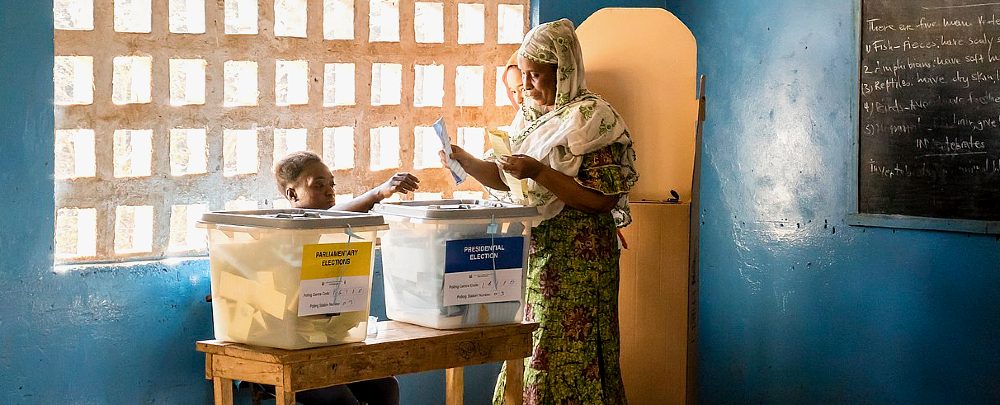
Africa is slated to hold 13 national elections in 2021. Roughly half of these are in the Horn and the central Sahel. Reflective of the democratic backsliding observed on the continent in recent years, more than a third of these polls are little more than political theater – aimed at garnering a fig leaf of legitimacy for leaders who arguably lack a popular mandate. Leaders attempting to circumvent term limits are a prominent feature in this year’s line-up, shaping nearly half of the elections, and showcasing some of Africa’s longest standing heads of state. A small but growing number of incumbents are likewise banning opposition parties, or criminalizing critical media reporting, to clear the electoral playing field.
A fundamental question for this year’s elections, therefore, isn’t just about who will win, but how these leaders will be viewed afterward. Will the same level of legitimacy be conferred on leaders who stay in office via these stage-managed processes? Until these leaders bear a reputational cost for lowering the bar of electoral integrity, this trend can be expected to continue.
Jump to Country:
- Uganda
- Niger
- Republic of the Congo
- Djibouti
- Benin
- Chad
- Ethiopia
- São Tomé and Príncipe
- Zambia
- Somalia
- Cabo Verde
- The Gambia
- Libya
Security is closely tied to issues of legitimacy and electoral integrity. Five countries undertaking elections this year are facing armed conflict (Chad, Ethiopia, Libya, Niger, and Somalia). The legitimacy these leaders may gain by winning popular endorsement can be a powerful tool for navigating these conflicts. Conversely, perceptions that entrenched leaders cannot be removed constitutionally via the ballot box will likely only fuel the grievances that lead to more violent forms of confrontation.
Not to be overlooked, there are a number of cases where leaders are stepping down at the end of their designated terms. These elections deserve attention in their own right as well as for the norms they reinforce.
